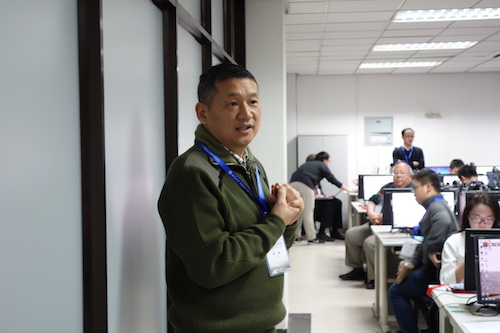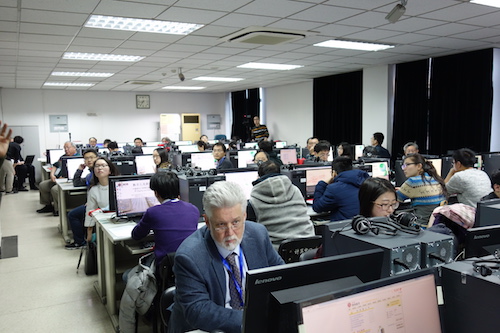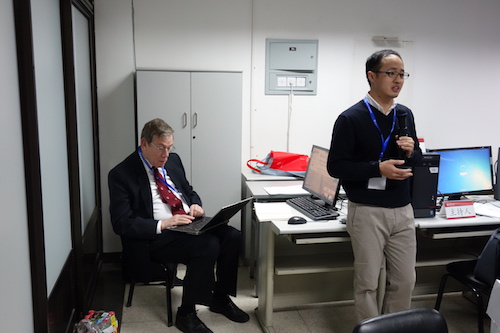On January 8, 2016, the opening for a three-day workshop on the China Biographical Database (CBDB) was held at Peking University. The project is managed by the Center for Research on Ancient Chinese History at Peking University, the Fairbank Center for Chinese Studies at Harvard University, and the Institute of History and Philology of Academia Sinica. The CBDB project aims at applying computer science on historical studies, such as collecting data from ancient bibliography and digitalizing significant historical records. The data collected could lead to systematic study of Chinese ancient society. The theme of the workshop this year was “New Approaches in Chinese Digital Humanities” and had the objective of strengthening people’s understanding of CBDB and “digging into data” techniques, along with sharing the newest developments in the area of digital humanities and social science research.

The opening of the workshop was hosted by Fang Chengfeng, professor of in the History Department at Tsinghua University; along with Luo Xin, history professor at Peking University, and Deng Ke, assistant professor at Tsinghua University, giving their opening speeches and best wishes to the workshop attendees. Since the CBDB project is at its eleventh anniversary, Professor Luo appreciates the hard work done by Peter K.BOL and all the fellows who have helped the project progress. Professor Deng indicates that international collaboration and cross-field academic research are the cores in CBOB development. While Professor Deng studied statistics at Harvard University, he believes similar mathematical techniques can also be applied in historical studies. Thus, he joined the project.

The next speaker, Peter K. BOL, is a professor at the Harvard College of East Asian Languages and Civilizations. He explained the origins and basic functions of CBDB. Initiated by Professor Robert Hartwell in the 1980’s, the project was then handed to the Center for Research on Ancient Chinese History, the Fairbank Center for Chinese Studies, and Institute of History and Philology of Academia Sinica in 2005. Along with help of other foundations, CBDB has gathered large amounts of data and has expanded its abilities.

First of all, CBDB is a database and not than an encyclopedia. Although it can handle massive amounts of information, it still has a margin of error. CBDB tries to reach its goals in different ways. For example, it gathers background information of ancient people that appear in historical records. By doing so, scientist can establish a prosopography; in which they are able to observe closely a group of people’s careers, religion, and social status, etc. Furthermore, CBDB supports the use of the GIS system; in other words, scientists can study the space and time of events’ happening. More importantly, the CBDB contributes to the study of social network analysis. Analyzing how human relationships builds a complex social network may help conclude the cause of some significant historic moments.

Above all, although there are still technical difficulties in CBDB, the project’s prospect is unpredictable; and with more future cooperation, the project will sure be a powerful tool in study of related fields.
Written by Sienna Luk

